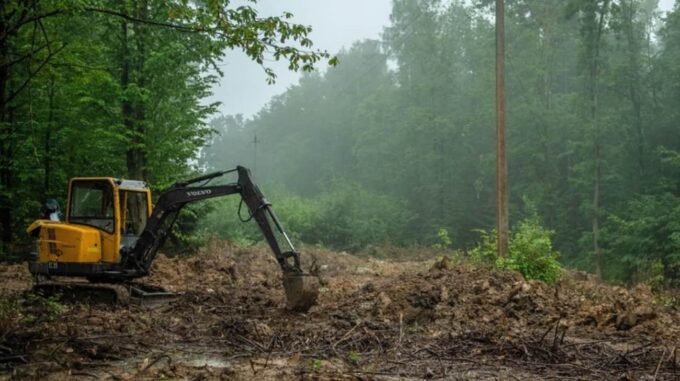On the Ternopil region, work has begun on exhuming the remains of Polish citizens whose names have remained unknown for over seventy years

This event marks a new stage in the pursuit of justice and reconciliation between Ukraine and Poland, as it concerns a tragedy that deeply united both countries with sorrow and has been a subject of prolonged historical discussions. On April 24, in the area of the vanished village of Puzhnyky, in Ternopil region, exhumation works of the bodies of Polish citizens who perished in 1945 at the end of World War II have commenced. This significant event is reported by the Polish news agency "European Truth," citing the RMF FM radio station. The Ternopil region, where this operation takes place, has previously been a site of ruthless conflicts and mass graves, and now the process of uncovering the truth is revived here. This large-scale effort involves Polish-Ukrainian researchers who serve as witnesses to reconciliation and seek a lawful and dignified answer for past crimes. The team includes forensic pathologists, archaeologists, geneticists, and anthropologists—specialists working with the aim of identifying the victims and returning them to their families with proper burial. The Polish side is represented by the "Freedom and Democracy" Foundation, while the Ukrainian side has involved experts from the National Memory Institute, the Pomorski National University, and partners from the Ukrainian non-governmental organization "Volyn Antiquities." Before the commencement of work, Polish Secretary of State Mieczysław Wróbel made an emotional statement, which also reflects the essence of this meticulous effort: "Polish citizens died in Puzhnyky, whose identities have now been established. We seek to find all those who became victims of that tragic night in 1945 and to conduct proper burials that will become symbols of memory and respect. Families who have been waiting for this news for many years are also involved in the process, providing genetic material for comparison. It is our shared responsibility and honor—to close this chapter of history." According to preliminary data, during the Second World War, about 80 Polish citizens were killed in Puzhnyky amid fierce battles and conflicts. The exact number of victims remains under investigation, but considering the historical context and eyewitness testimonies, it can be confidently stated that this was a large-scale tragedy. Additionally, it should be noted that the location of the exhumation site in a remote forest presents certain difficulties: transporting specialized equipment with heavy loads was challenging, especially given the current weather conditions. However, this morning, thanks to bright sunlight and clear weather, the work gained a more favorable pace. This historical process occurs amid tense political and diplomatic discussions that have been ongoing for years between Ukraine and Poland. The issue of search and exhumation works has become one of the most controversial and sensitive topics in bilateral relations. Between 2015 and 2017, incidents of vandalism of Ukrainian monuments in Poland were recorded, causing widespread resonance and deepening historical tensions. In response, Ukraine introduced so-called moratoriums on conducting search operations concerning Polish victims murdered during WWII by UPA fighters. This led to prolonged disputes and disagreements, escalating the crisis of trust between the countries. In recent times, amid changing political circumstances and under the influence of the newly elected government in Poland, especially under the leadership of Donald Tusk, decisions were made to resume research and search activities. Ideas even emerged in Warsaw suggesting that resolving historical conflicts and reaching an agreement on this issue could become one of the conditions for Ukraine’s future accession to the European Union. This has made the issue of exhumation even more relevant on the diplomatic stage. Already in January of this year, it was announced that the "Freedom and Democracy" Foundation, which two years earlier identified a burial site in Puzhnyky, had received permissions from Ukrainian authorities to conduct exhumation and further research. This information was released after the Polish political leadership announced a significant breakthrough in establishing the truth regarding the Volyn Tragedy. The opening of this new chapter in the shared history of the two nations emphasizes the importance of organizing the work of such humanitarian projects and restoring historical justice. Overall, the current exhumation efforts in Puzhnyky can be seen as a step toward overcoming the past conflict, rebuilding trust, and seeking understanding between Ukraine and Poland. It is a complex but necessary part of history that reminds us of the cost of war, human tragedy, and the role of memory in healing entire nations. The identification of the victims is crucial not only for uncovering the historical truth but also for respecting the dignity of those who did not return home after the terrible night of 1945.

